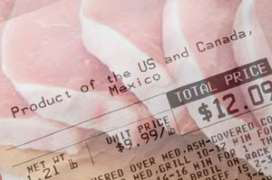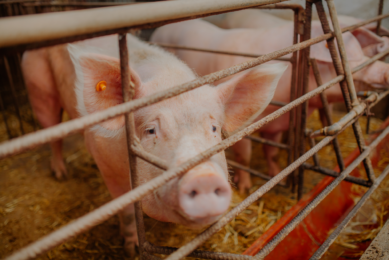Industry groups drop COOL lawsuit

Industry groups opposed to country-of-origin labeling (COOL) withdrew a legal challenge to the law, reports Meat + Poultry Daily.
“Plaintiffs have reached a decision that they will not further pursue their claims in this action, and Defendants and Intervenors stipulate to dismissal,” court documents filed with US District Court for the District of Columbia said. This latest action brings to an end American Meat Institute, et al. v. United States Department of Agriculture, et al.
Out of compliance with trade obligations
“While we remain disappointed with the court’s ruling on country of origin labeling (COOL), we agree with the World Trade Organization’s assessment that the US rule is out of compliance with its trade obligations to Canada and Mexico,” Barry Carpenter, president and CEO of the North American Meat Institute, said in a statement. “As Secretary Vilsack has said, a statutory fix is needed to bring the US into compliance to avoid retaliatory tariffs and we’re committed to working with Congress to fix COOL once and for all.”
Higher costs and retaliation
Some meatpackers and industry organizations have opposed COOL, arguing the labeling law will only result in higher costs and retaliation by Mexico and Canada. AMI and other meat and livestock organizations argued that the final COOL rule violated the US Constitution by compelling speech in the form of costly and detailed labels on meat products that do not directly advance a government interest. They added that the 2013 regulation exceeds the scope of the statutory mandate because the statute does not permit the kind of detailed and onerous labeling requirements the final rule puts in place — and that the rule is arbitrary and capricious because it imposes vast burdens on the industry with little to no countervailing benefit.
Canada’s opposition to COOL
Canadian Agriculture Minister Gerry Ritz and a delegation of stakeholders in the Canadian beef industry recently traveled to Washington to reinforce Canada’s opposition to COOL. But other groups have supported COOL as a way to satisfy consumer demand for more information about the sources of the foods they buy. The National Farmers Union (NFU), R-CALF and other organizations applauded the decision to withdraw the lawsuit. “If the US courts are any indication of the trajectory of success of COOL, then American consumers are finally going to be permitted to know where their food comes from without intervention from our chief trade competitors and their multinational allies,” said Roger Johnson, NFU president.
At least three legal challenges to COOL failed, and the World Trade Organization also has ruled against US COOL three times. In October 2014, a WTO compliance panel found that an amended version of COOL increased the detrimental impact on “the competitive opportunities of imported livestock in the US market.” But the Obama administration appealed the WTO’s that ruling against COOL in November.











